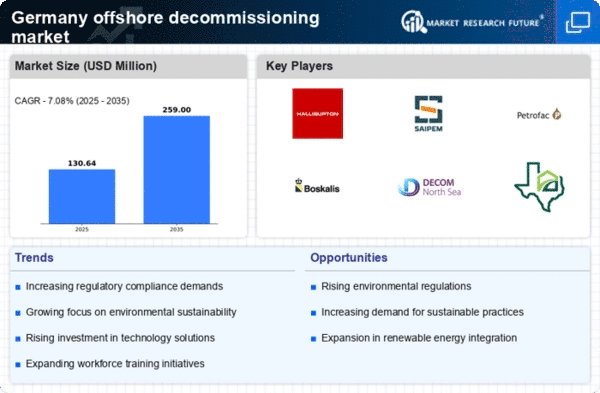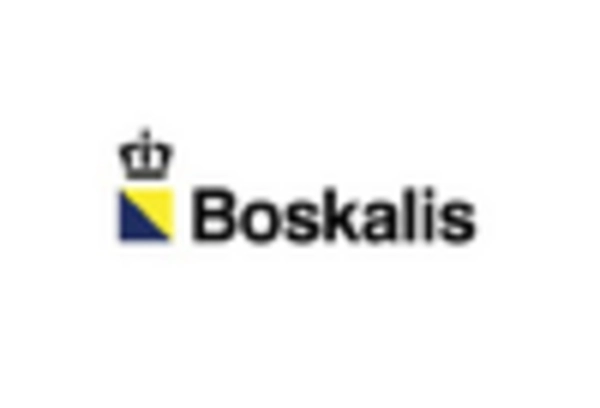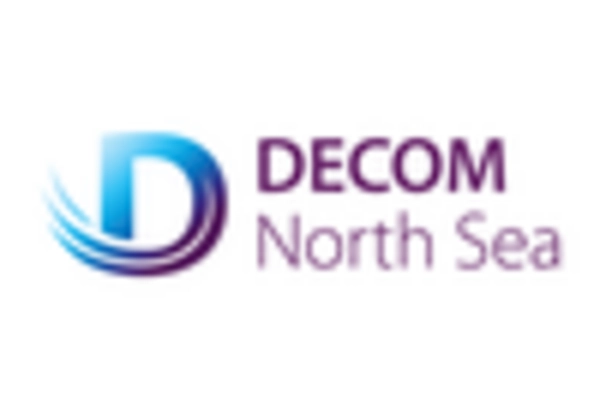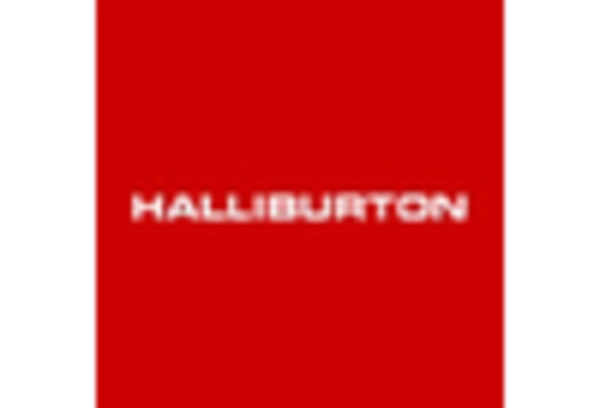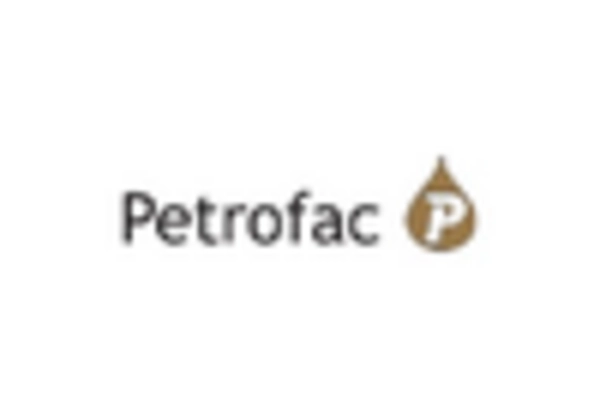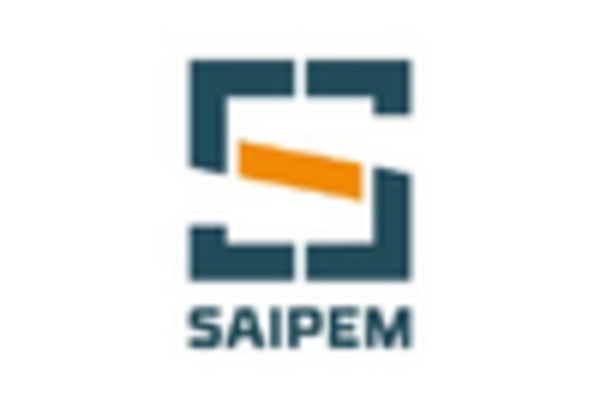Technological Advancements
Technological advancements play a crucial role in shaping the offshore decommissioning market in Germany. Innovations in robotics, remote monitoring, and data analytics are enhancing the efficiency and safety of decommissioning operations. For instance, the integration of autonomous underwater vehicles (AUVs) allows for precise inspections and assessments of decommissioned structures, reducing the need for human intervention in hazardous environments. As of 2025, the market is expected to witness a surge in investments in these technologies, with an estimated increase of 15% in R&D spending by key players. The offshore decommissioning market is likely to benefit from these advancements, as they not only streamline operations but also minimize environmental impact, aligning with Germany's commitment to sustainability.
Regulatory Framework Evolution
The offshore decommissioning market in Germany is significantly influenced by the evolving regulatory framework. The German government has implemented stringent regulations aimed at ensuring environmental protection and safety during decommissioning activities. This regulatory landscape compels operators to adopt best practices and invest in advanced technologies to comply with legal requirements. As of 2025, the market is projected to grow at a CAGR of 5.2%, driven by the need for compliance with these regulations. The offshore decommissioning market must navigate complex legal requirements, which may lead to increased operational costs but also fosters innovation in decommissioning techniques. The emphasis on regulatory compliance is likely to shape the strategies of companies involved in the offshore decommissioning market, pushing them towards sustainable practices and technologies.
Market Demand for Sustainable Practices
The growing demand for sustainable practices is a significant driver of the offshore decommissioning market in Germany. Stakeholders, including investors and consumers, are increasingly prioritizing environmentally responsible decommissioning methods. This shift is prompting companies within the offshore decommissioning market to adopt greener technologies and practices. As of 2025, it is anticipated that approximately 30% of decommissioning projects will incorporate sustainable methodologies, such as recycling materials and minimizing waste. This trend not only enhances the reputation of companies but also aligns with Germany's broader environmental goals. The offshore decommissioning market is thus likely to evolve, with a stronger emphasis on sustainability, which may lead to new business models and partnerships focused on eco-friendly solutions.
Aging Infrastructure and Asset Retirement
The aging infrastructure of offshore oil and gas facilities in Germany is a critical driver for the offshore decommissioning market. Many platforms and installations are reaching the end of their operational life, necessitating decommissioning to ensure safety and environmental protection. As of 2025, it is estimated that over 40% of existing offshore installations will require decommissioning within the next decade. This presents a substantial opportunity for the offshore decommissioning market to engage in large-scale projects. The need for timely and efficient decommissioning processes is paramount, as delays could lead to increased risks and costs. Consequently, companies are likely to invest in advanced decommissioning technologies and methodologies to address the challenges posed by aging infrastructure.
Investment in Renewable Energy Transition
The transition towards renewable energy sources is influencing the offshore decommissioning market in Germany. As the country shifts its focus from fossil fuels to renewable energy, many offshore oil and gas facilities are being decommissioned to make way for wind farms and other sustainable energy projects. This transition is expected to create a demand for decommissioning services, with projections indicating that the offshore decommissioning market could see a growth of 20% in projects related to the removal of outdated infrastructure. The alignment of decommissioning efforts with renewable energy initiatives not only supports Germany's energy transition goals but also presents opportunities for companies to diversify their portfolios. The offshore decommissioning market is thus poised for growth as it adapts to the changing energy landscape.


